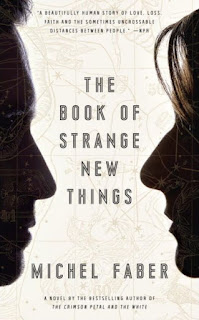John Brockman invited many of the best minds in the world to pose questions for his book The Last Unknowns. So why do so many of their questions seem stupid to me?
 |
| Stewart Brand |
Someone else asks, "Will scientific advances about the causes of sexual conflict help to end the 'battle of the sexes'"? Understanding the battle of the sexes is one thing, but do we really want science to end it? Wouldn't that mean ending the differences between men and women?
"How do I describe the achievements, meanings, and power of Beethoven's piano sonata Appassionata?" Yes, how do you describe it, and how is that more important than how any other music lover describes it? And is this really the last question humanity should be asking?
"How can we design a machine that can correctly answer every question, including this one?" Some questions have answers, but some don't. There are rhetorical questions, for example. There are questions like, "How are you feeling today?" that can have imprecise answers or different answers depending upon circumstances. Why would we even want a machine to answer all questions?
"How will we know if we achieve universal happiness?" Maybe when everyone is happy. I wonder, has this scientist ever read 1984 or Brave New World?
"Can we create new senses for humans — not just touch, taste, vision, hearing, smell, but totally novel qualia for which we don't have words?" No comment necessary.
"Will civilization collapse before I die?" According to people on both sides of the political spectrum, it could happen soon after the next election.
"Has consciousness done more good or bad for humanity?" Is this professor suggesting that we might be better off if we were all unconscious?
"Will questioning be replaced by answering without questions?" This comes from a physicist, in whose field I am sure answers sometimes come before anyone thinks to ask the questions. But on the whole, a world without questions seems neither desirable nor possible.
A journalist named Carl Zimmer asks, "How does the past give rise to the the future?" The answer, I believe, is that thin dividing line known as the present.
"How can the process of science be improved?" Someone else asks a similar question. The answer seems obvious to me — stick to science. Forget about politics and political correctness. When scientists no longer feel free to express dissenting findings in such areas as climate change, the treatment of Covid, gender transition and evolution, real science is no longer being practiced.










